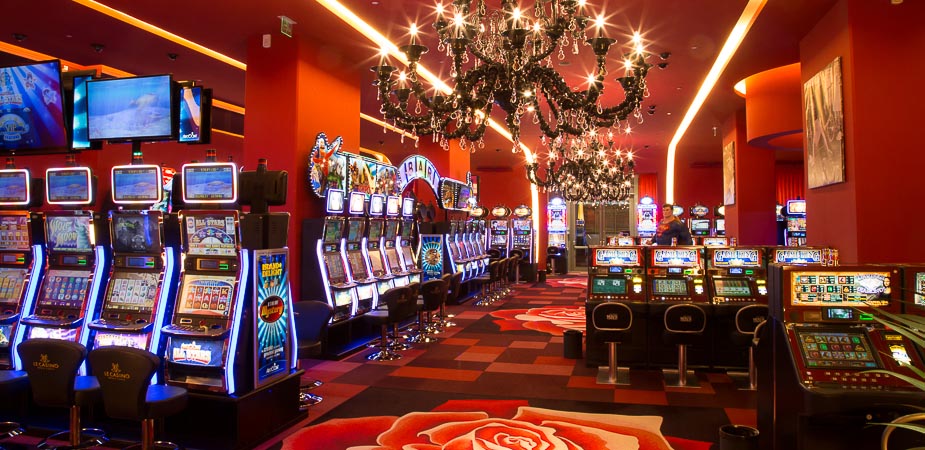Gambling Games and Their Influence in Cultural Trends

Casino experiences have long captured the imagination of individuals around the globe, becoming an essential part of both leisure and culture. From the sparkling lights of the Vegas Strip to the captivating experience of online gaming, these experiences evoke thrill, risk, and sometimes even a sense of remembrance. They are beyond just pastimes; they have woven themselves into the texture of human experience, influencing various aspects from film and songs to style and literature.
The allure of casino games goes beyond the gambling aspect, tapping into wider themes of serendipity, chance, and psychology. As players assemble around a card table or spin the wheel of fortune, they engage in an age-old ritual that connects with our shared desire for excitement and instability. This obsession has led to the rise of countless references in films, tracks, and electronic games, showcasing how deeply entrenched these activities are in mainstream culture. Whether it is the pressure of a legendary heist movie or the lively nightlife portrayed in music videos, casino games have carved out a substantial role that reflects our bond with risk and reward.
Cultural Significance of Gambling Activities
Gambling activities have played a crucial role in social contexts throughout the ages. Stemming from ancient societies, forms of chance were often linked to ceremonies or events. For instance, early iterations of gambling can be linked back to historic Chinese and the Romans, where dice games and betting on outcomes were popular pastimes. These games not only functioned as entertainment but also as methods of social interaction, facilitating relationships among individuals within communities. best non GamStop casinos
As cultures evolved, so did the complexity and structure of gambling games. The creation of official casinos in the 17th century, particularly in Italy, marked a major shift in how games were viewed and organized. With specific spaces for gaming, the casino became a social hub where patrons from different backgrounds gathered. This change contributed to the legitimization of gambling, transforming it from a mere pastime into an organized industry that influenced economy and policy.
The effect of gambling games on mainstream culture cannot be overlooked. As they were popularized in books and movies, games such as poker and blackjack became icons of chance, luck, and tactics. Iconic characters and stories have emerged around these activities, reflecting societal views towards fortune, wealth, and vice. This interest with casino games has infiltrated various forms of entertainment, solidifying their place in the collective consciousness and connecting them to broader cultural stories throughout the ages.
Representation of Gambling Activities in Entertainment
Casino activities have long been a popular topic in different types of entertainment, reflecting both the excitement and complexities of gambling culture. Movies such as Ocean’s 11 and Casino Royal portray individuals who navigate intense situations, showcasing not only the attractiveness of the gambling environment but also the strategies and decisions that come with playing popular games like Texas Hold’em and 21. These movies often dramatize the exhilaration of winning and the potential consequences of losing, encapsulating the perils involved in betting.
TV programs have also explored the realm of gambling activities, often integrating them into the storyline as a backdrop for story progression and conflict. Series like Vegas depict the lives of casino workers and patrons, highlighting the lively, often disorderly energy of the casino floor. Docuseries featuring high-stakes gambling competitions further emphasize the appeal of casino games, drawing viewers into the excitement and tactics involved in each session. Through these depictions, media not only amuses but also sparks conversations about fortune, skill, and the essence of chance.
Digital games have increasingly incorporated gambling activities into their development, allowing players to recreate the thrill of betting without financial risk. Games within the realm of online gaming often include virtual slots, poker, and other popular casino games, creating an interactive experience that mirrors traditional gambling. These digital representations make gambling activities accessible to a worldwide viewer base, appealing to both players who indulge and those who enjoy the rush of virtual experiences. As a result, the portrayal of casino games in media continues to shape societal views and cultural significance, highlighting their function in society and culture.
Effect of Casino Games on Society
Gambling activities have a significant impact on society, affecting various aspects of societal norms and social behavior. They often function as a venue for community engagement, where people come together to enjoy a common activity. Game nights with friends or trips to casinos become group events that foster connections and create memories. This communal aspect boosts the fun value of casino games, making them a popular choice for festivities and recreational pursuits.
Moreover, casino games have been depicted in countless movies, television shows, and written works, influencing perceptions and opinions towards gaming and betting. Icons like James Bond playing baccarat or the high-stakes poker scenes in films have cemented these games in the collective imagination. This depiction often glamorizes the lifestyle associated with gambling, attracting new players and impacting trends in both fashion and behavior. These representations can ignite curiosity and lead to a deeper investigation of the intricacies of gambling.
Nonetheless, there are also negative implications linked to the popularity of casino games. The temptation of quick monetary gain can lead to problem gambling and financial troubles for some people. Society must contend with these issues, promoting responsible gaming and education of the risks involved. Balancing the fun aspect of casino games with the potential for harm is crucial to ensure that they continue to be a beneficial aspect of our cultural landscape.